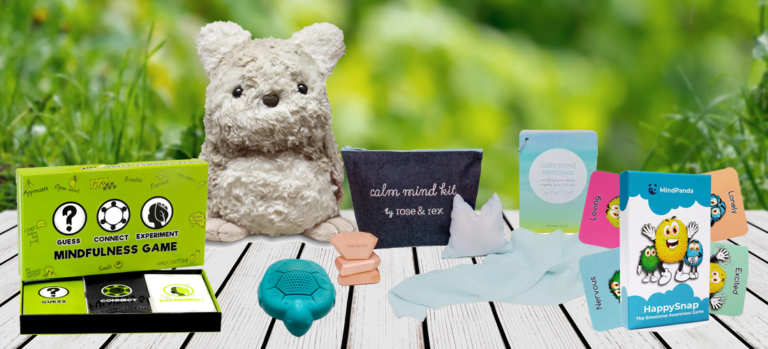Mastering self-discipline is a vital component of personal growth and success. It serves as the foundation for a variety of life skills including time management, goal setting, and maintaining a healthy lifestyle. Self-discipline empowers us to resist temptations and distractions, keeping us focused on our goals and aspirations. It allows us to develop a sense of control and satisfaction, leading to improved self-esteem and overall well-being.
However, developing self-discipline is not always easy and entails overcoming several challenges. We live in an age of instant gratification where distractions are ubiquitous and delaying gratification is often difficult. This, coupled with the human tendency to seek comfort and avoid discomfort, can make the path to self-discipline feel like an uphill battle. But remember, the journey of developing self-discipline is a marathon, not a sprint. It requires patience, commitment, and most importantly, a mindset shift towards embracing discipline as a means for self-improvement rather than a limitation.
The Concept of Self-Discipline
Self-discipline, often referred to as self-control or self-management, is the ability to push oneself to take action regardless of emotional state or external circumstances. It’s the power that drives us to persist in our endeavors, resist temptations, and maintain consistency in our actions to achieve long-term goals.
Mastering self-discipline is vital because it acts as the foundation of a strong character and the driving force behind achieving success and satisfaction in life. It promotes accountability, resilience, and a sense of accomplishment.
Self-discipline is different from motivation which, while important, is more about the emotional drive that spurs us into action. Unlike self-discipline, motivation is often fleeting and dependent on our mood or circumstances. When motivation wanes, as it inevitably will, self-discipline is the trait that keeps us moving forward. It’s the steadier, reliable companion that picks up the slack when motivation is lacking, making it an invaluable tool in our arsenal for personal and professional growth.
Mastering Self-Discipline
Mastering self-discipline is essential for achieving your goals, staying focused, and leading a more productive and fulfilling life. Here are some tips to help you develop and strengthen your self-discipline:
1. Set Clear and Specific Goals
Setting clear and specific goals is a powerful technique for mastering self-discipline. When you have a precise path to follow, it’s easier to stay focused and resist distractions. Say, for instance, you want to improve your fitness. Instead of a vague goal like “get in shape,” a specific goal would be “jog for 30 minutes every morning.”
This specificity guides your actions and provides a clear benchmark for success. It’s a way of telling your mind, “This is the target, let’s get to work.” Over time, as you consistently meet these precise goals, you’ll strengthen your self-discipline muscles, making it easier to stay on course, even when obstacles arise.
2. Create a Daily Routine
Creating a daily routine is a pivotal strategy in mastering self-discipline. It involves structuring your day in a way that aligns with your goals and your values. When you have a set routine, you make it easier for your brain to transition from one task to another, reducing the decision-making process and thus curtailing procrastination.
A daily routine fosters consistency, a key component of self-discipline. Once a task becomes part of your routine, it takes less effort to accomplish it, freeing up mental energy for other pursuits. Over time, this habitual practice results in enhanced focus, productivity, and ultimately, self-discipline.
3. Prioritize Tasks and Practice Time Management
Mastering self-discipline often starts with learning to prioritize tasks and manage time effectively. When you prioritize your tasks, you make a conscious decision to focus on what’s most important. This requires discipline, as it’s often more tempting to do the easier tasks first. However, by tackling the most critical tasks first, you’re exercising control over your actions and making the best use of your time.
Similarly, effective time management is a vital aspect of self-discipline. It’s about making a schedule and sticking to it, avoiding procrastination, and resisting the lure of distractions. Over time, these practices help you develop a stronger sense of self-discipline, as you’re constantly making choices that align with your goals, rather than your momentary desires.
4. Develop Self-Awareness
Developing self-awareness is an integral step toward mastering self-discipline. It’s like shining a spotlight on your habits, behaviors, and thought processes. As you become more aware of your patterns, it becomes easier to identify distractions and triggers that lead to unproductive actions. Once these are recognized, you can proactively devise strategies to avoid them, leading to an improvement in self-discipline. It’s not an overnight process; it requires patience and dedicated effort. Remember, the journey to self-discipline starts with understanding yourself.
5. Build Healthy Habits
Building healthy habits is a powerful strategy towards mastering self-discipline. This technique is about replacing detrimental routines with beneficial ones, a step which requires consistent effort and perseverance. It’s not enough to just drop a bad habit; the key is to replace it with a healthier alternative. For instance, if you’re seeking to cut down on your screen time, instead of lying idle or contemplating what to do next, replace this habit with a constructive activity such as reading a book or going for a walk.
Gradually, you’ll notice that you’re not just disciplining yourself to reduce screen time, but also developing a fondness for reading or exercising. This is the essence of building healthy habits – it’s not about restriction, but about creating a more rewarding system. Remember, self-discipline doesn’t mean living a restrictive or a stringent lifestyle, it’s about making better choices and sticking to them.
6. Practice Self-Control
Practicing self-control is a key technique for mastering self-discipline. Think of it as a mental muscle. The more you flex it, the stronger it becomes. It’s about understanding your impulses, emotions, and reactions, and then choosing your actions deliberately instead of acting on a whim.
This practice can be applied to various aspects of your life, be it resisting the lure of unhealthy snacks to maintain a healthy diet, or opting to spend an hour learning a new skill instead of mindlessly watching TV.
Over time, as you consistently exercise self-control, you’ll notice an improvement in your ability to maintain focus, stick to your commitments, and ultimately, master self-discipline. Remember, self-discipline is a marathon, not a sprint – so be patient and persistent, and celebrate your small wins along the way!
7. Stay Accountable
Staying accountable is a key technique in mastering self-discipline. It’s all about taking responsibility for your actions and decisions. When you acknowledge that your goals and aspirations depend on your behavior, it’s easier to resist the urge to slack off or procrastinate.
This might mean finding a trusted friend or family member to share your goals with, or even making your intentions public. It’s harder to back out of a commitment when others are watching. Remember, accountable individuals are disciplined individuals. It’s all about making a promise to yourself and then doing everything in your power to keep it.
8. Break Down Big Tasks
Mastering self-discipline often involves dealing with the overwhelming nature of big tasks. It’s easy to feel intimidated or procrastinate when a task seems too big or complex. However, breaking down such tasks into smaller, manageable parts is a proven technique to enhance your self-discipline.
This strategy not only makes the task less daunting but also allows you to focus on one piece at a time, making it easier to start and maintain momentum. Each completed piece gives a sense of achievement and helps reinforce your self-discipline, leading to consistent progress and eventual completion of the overall task.
9. Minimize Distractions
Minimizing distractions is a pivotal step towards mastering self-discipline. In our current digital age, numerous distractions are just a click away, making it easy to lose focus and stray off path. Whether it’s incessant social media notifications, the allure of online shopping, or the temptation to binge-watch your favorite series, distractions vary widely.
By proactively minimizing these distractions, you’re allowing yourself to concentrate on your tasks and goals. This could mean setting your phone to silent during dedicated work hours, decluttering your workspace, or using apps that block distracting websites. In essence, creating a distraction-free environment is like clearing a pathway for your willpower and focus to effectively navigate, thus enhancing your self-discipline.
10. Reward Yourself
Rewarding yourself is a powerful way to master self-discipline. While it may seem counterintuitive, giving yourself a treat for achieving a goal or sticking to a difficult task can actually strengthen your self-control and keep you motivated. This isn’t about indulging in unhealthy habits or going overboard, but rather setting up a system where you receive small, enjoyable rewards for staying disciplined.
By doing this, you’re leveraging our innate human love for instant gratification, but in a way that supports your long-term goals and the habit of self-discipline. It’s a win-win! Just remember, the key is to choose rewards that align with your goals and values, and don’t cause you to lose sight of your bigger objectives.
11. Learn from Setbacks
Learning from setbacks is a pivotal technique in mastering self-discipline. Nobody is born a master of self-discipline – it’s a skill we cultivate, often through trial and error. When we stumble, we are given a unique opportunity to learn, grow, and optimize our approach. Instead of dwelling on the setback, we can analyze what went wrong and why. Was there a lack of planning? Distractions getting in the way?
By understanding the root cause, we can make necessary changes for future endeavors. Each setback becomes a stepping stone, nudging us towards better self-discipline. Remember, bouncing back from setbacks is not just about getting back on track—it’s about refining the track we’re on.
12. Practice Patience
Mastering self-discipline is akin to training a muscle; it requires time, consistency, and above all, patience. It’s crucial to acknowledge that the journey towards self-discipline isn’t paved with instant success, rather, it’s a gradual process filled with lessons and growth. When we practice patience, we adopt a long-term perspective. We learn to resist the appealing yet distracting, immediate gratification in favor of long-lasting rewards. It’s like choosing to save money for a dream vacation over daily expensive coffee.
Patience also equips us with the capacity to handle failures and setbacks, transforming them into stepping stones rather than roadblocks. Remember, self-discipline isn’t a sprint, it’s a marathon. And patience? It’s your most reliable running mate.
Remember that mastering self-discipline is an ongoing endeavor. It requires commitment, self-reflection, and continuous effort. By incorporating these tips into your daily life, you can strengthen your self-discipline and move closer to achieving your goals.
Conclusion
Mastering self-discipline is not just about saying ‘no’ to immediate gratifications or staying away from distractions. It’s more about saying ‘yes’ to your long-term goals, your personal growth, and the best version of yourself. Remember, Rome wasn’t built in a day. Cultivating self-discipline is a gradual process and it’s absolutely okay to stumble along the way. What’s important is your consistent effort to get back on track each time. Keep practicing these tips we’ve discussed, and in time you’ll see the transformative power of self-discipline in every sphere of your life.











